#Organic Waste Compost
Text
What is an organic waste composting machine?
An organic waste composting machine operates autonomously to enhance the composting process, yielding superior compost. It processes waste into manure.
Manual composting can be time-consuming. To prevent waste accumulation, it’s imperative for companies to deploy composting machines for prompt waste conversion.
These machines are designed to expedite the composting process.
#composting machine#waste management#greenius#organic waste compost#organic waste composting machine
1 note
·
View note
Photo

Kelvin Water Technologies Pvt. ltd. is the mfr and supplier of owc machine which convert organic waste into compost in 24-28 hours in only one click. It is totally automatic organic waste composter machine, loaded with all safety features, designed completely on SS 2304 platform. https://www.kelvinindia.in/organic-waste
0 notes
Text
Use the organic waste composting machine to ensure the quality of the organic fertilizer. You can then use the organic waste recycling machine to mix it up and finish composting. It generates food waste, this organic material can be easily broken down into high-quality compost. Organic waste composters naturally convert biodegradable waste or food waste into compost with the help of hemophilic and thermophile bacteria.
0 notes
Text
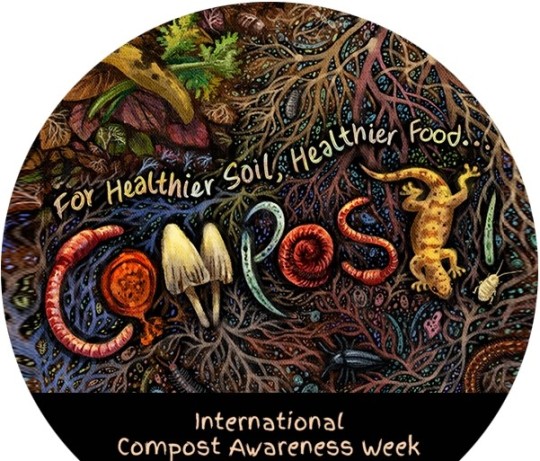
MAY 5 - 11 2024
Only a couple of sleeps left to go!!!!!
#International compost awareness week#compost#garden#gardeners on tumblr#gardening#home grown#self sufficiency#vegetables#minimal waste#zero waste#plants#organic food#composting
200 notes
·
View notes
Text
The new 'compost obligatoire' rules came into force on 1 January 2024. Here's what they entail.
As of 1 January 2024, organic waste recycling is mandatory in France under new 'compost obligatoire' rules.
With support from the government’s Green Fund, municipalities must provide residents with ways to sort bio-waste, which includes food scraps, vegetable peels, expired food and garden waste.
Households and businesses are required to dispose of organic matter either in a dedicated small bin for home collection or at a municipal collection point. Previously, only those who generated over five tonnes of organic waste per year were required to separate it.
The waste will then be turned into biogas or compost to replace chemical fertilisers. Alternatively, it can be composted at home.
The obligation is currently on local authorities to provide an easy means for households to compost or separate organic waste.
While facilities are rolled out, there will not be fines imposed for non-compliance. It is yet to be seen whether stricter rules will be imposed in future.
One-third of household waste is bio-waste
Organic waste from food and gardens accounts for almost one-third of household waste. When it is mixed with other rubbish, it typically ends up in landfills or incinerators, where it produces heat-trapping greenhouse gases like methane and CO2.
Food waste is responsible for about 16 per cent of the total emissions from the EU food system, according to the European Commission. Globally, food loss and waste generates around 8 per cent of all human-caused emissions annually, the UN says.
It can also contaminate packaging destined for recycling like paper, plastic and glass.
In 2018, only 34 per cent of the EU’s total bio-waste was collected, leaving 40 million tonnes of potential soil nutrients to be discarded, according to NGO Zero Waste Europe.
In France, an estimated 82 kg of compostable waste per person is thrown away each year.
Is bio-waste separation mandatory in other European countries?
Under the EU’s Waste Framework Directive, bio-waste collection is being encouraged this year, but it stops short of setting mandatory targets.
In many European countries, organic waste separation has already been implemented at the municipal level.
Milan in Italy has been running a residential food waste collection programme since 2014. Households were given dedicated bins and compostable bags to kick off the scheme.
Elsewhere, taxes or bans on incinerating bio-waste have encouraged similar schemes, with separate bins and home composting widespread in Austria, the Netherlands and Belgium.
The UK announced plans to roll out separate food waste collection in 2023. It remains voluntary for households in England, but is more strictly enforced in Wales and for business owners.
How to sort your bio-waste
Ideally, all waste - including organic matter - should be kept to a minimum.
This can be achieved through careful meal planning. Consuming, freezing or preserving food before it expires along with using every part of an ingredient also help to reduce waste. Some food waste can even be repurposed into animal feed.
Any food waste that cannot be saved or repurposed should be either composted or separated for collection. This includes uneaten food scraps, baked goods, dairy products, eggshells, fruit and vegetables and their peels, mouldy food, pet food, raw and cooked meat and fish, bones, tea and coffee grounds.
Liquids, non-food products and packaging should not be placed in bio-waste bins.
-via EuroNews.Green, January 2, 2024
#france#composting#eu#european union#organic waste#biofuels#recycling#sustainability#food#food waste#compost#carbon dioxide#carbon emissions#sustainable living#good news#hope
182 notes
·
View notes
Text


Malaysia's Origo Eco is all about replacing non-sustainable items with compostable solutions.
Su clarified that compostable is not the same as biodegradable, which refers to any items that break down into smaller pieces, meaning that they can still leave harmful residue behind.
Compostable items, on the other hand, are specifically organic matter that release good nutrients back into the environment as they break down—such as the RiceStraws.
#solarpunk#solarpunk business#solarpunk business models#solar punk#startup#reculture#organic waste#rice farming waste#compostable materials#materials innovation#malaysia
20 notes
·
View notes
Text
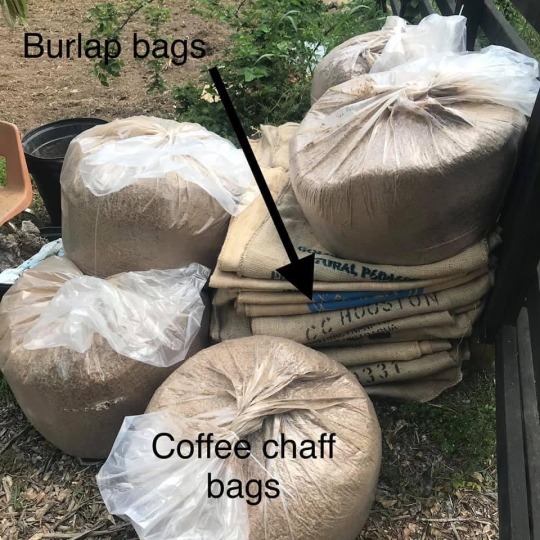

Carbon is everywhere and it’s a good decision to utilize it at every convenience, especially if you grow food. Shown in the photos are waste products that didn’t make it to the trash. Instead they where used to make soil at “The Carbon Farm” which is part of the #Aglanta program supported by Groundwork Atlanta.
#soil food web#carbon#zero waste#Aglanta#groundwork atlanta#biodynamic#polyculture#permaculture#atlanta urban ag#compost#soil#food systems#urban ag#food access#biodiversity#soil creation#worms#organic#soil health#food justice#food security#vermicomposting#food sovereignty#maurice small
84 notes
·
View notes
Text
my biggest goal for when we get comfortable and have some extra money is to build a big ass food garden in my front yard that all my neighbors will have access to during daylight
like i keep thinking about what id plant and the signs id make and it makes me legitimately excited
#i also wanna build a blessing box near it for preserved food or non-food essentials#like blankets socks toiletries the works#maaaaybe a compost bin near the garden too for neighbors to dump organic waste that would then feed the garden#im too fucking eccentric for my own good man ill be adding more and more shit as im able to#it will consume me i know this
2 notes
·
View notes
Text

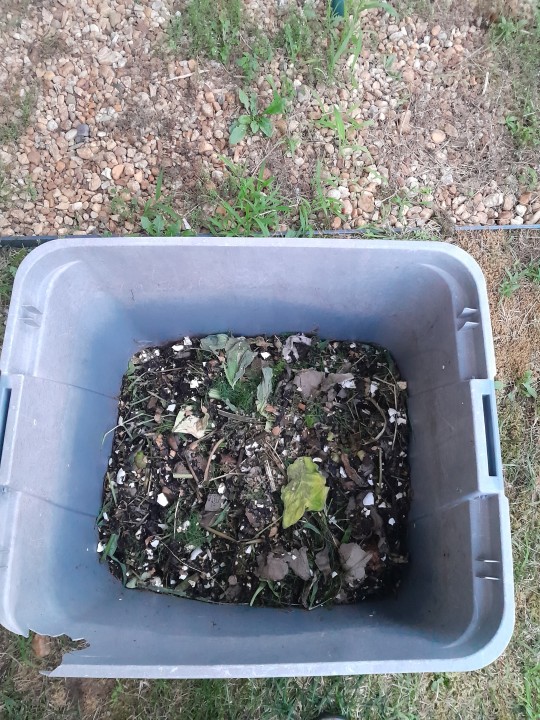
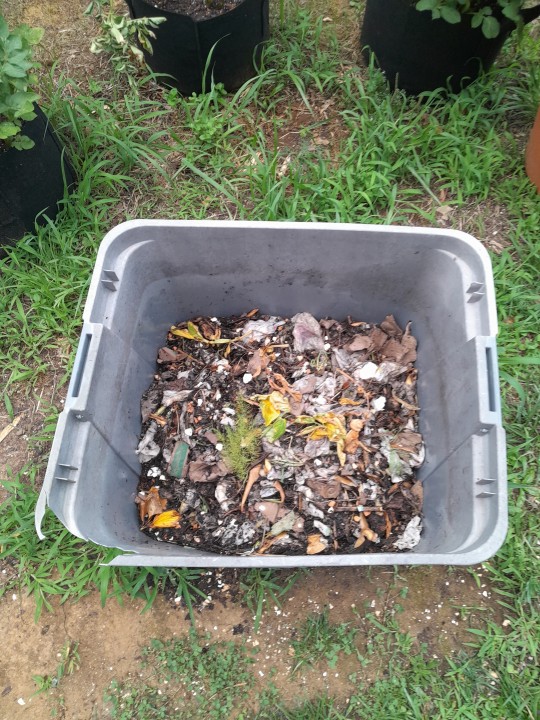
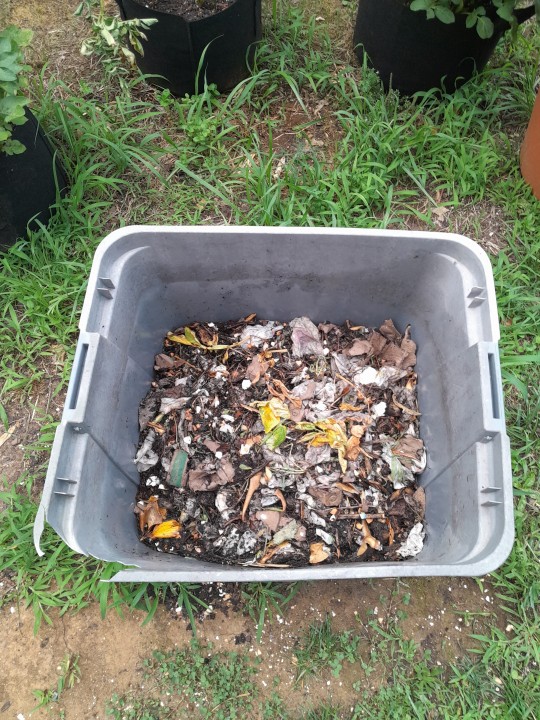
My compost bin throughout the growing season
2 notes
·
View notes
Text
Creating a DIY Compost Bin for Organic Waste Management: A Step-by-Step Guide
Creating a DIY Compost Bin for Organic Waste Management: A Step-by-Step Guide
Are you tired of throwing away your food scraps and yard waste, only to have it end up in a landfill? Well, have no fear, because creating a DIY compost bin is here! Not only will it reduce the amount of waste you send to the landfill, but it will also provide you with nutrient-rich soil for your garden.
First, let’s talk about what can go in your compost bin. Food scraps such as fruits and…
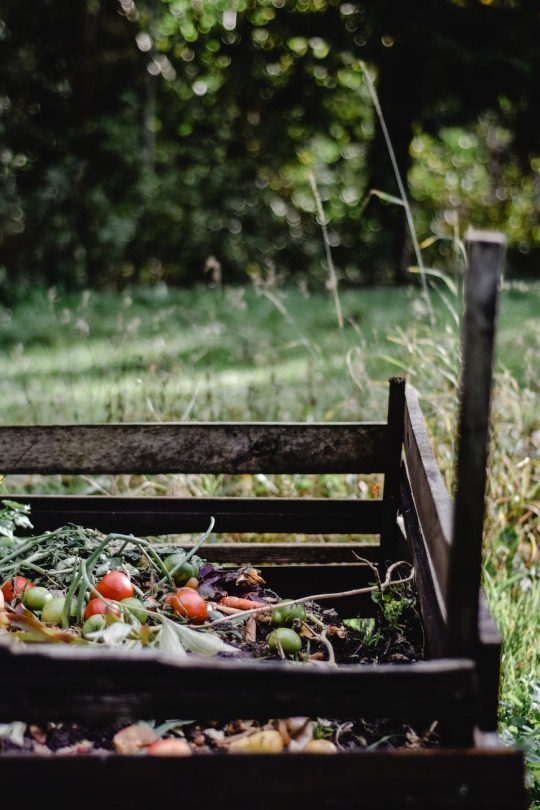
View On WordPress
#aeration#carbon#Compost#decomposition#diy#Environment#food#garden#management#Moisture#organic#scraps#soil#waste#yard
2 notes
·
View notes
Text
We @kelvinwatertech manufacture sludge dewatering machines & supplying them globally in the open market.
Our capacity of sludge dewatering Machine starts from 4-14kg/hr & goes upto 266-640kg/hr.
Ask us for prices
Contact info:
https://www.kelvinindia.in/
Drop your query at [email protected]
Directly Call Us at 9812241001
0 notes
Link
Kelvin Water Tech is the best solution for converting organic waste into compost . We have fully automatic equipment i.e. organic waste composter machine that process waste in 22-24 hrs. in an environmentally safe manner, with no pollution & foul smell.
0 notes
Link
Sustainability is essential to make a healthy future. Waste composting machines enable every citizen to contribute to it. With the biodegradable waste converter machine, we can start composting the waste even at the household level. From nourishing the nutrient-depleted soil to making every household self-sufficient, we can bet on an array of benefits. The growing awareness about sustainability and government initiatives push ordinary people to start composting at the ground level. Eco-friendly waste management is a reality today with waste composting machines and new technologies, making the future sustainable and clean.
0 notes
Text

Today's garden jobs included refreshing a garden bed with lots of home made compost and then mulching it with Autumn leaves from the yard.
This kind of basic, low tech, cost free gardening practice feels so right for me.
#garden#gardeners on tumblr#gardening#vegetables#self sufficiency#home grown#minimal waste#zero waste#plants#organic food#compost#mulch#recycling#soil
8 notes
·
View notes
Text
Best Organic Waste Composter
Are You searching for Organic Waste Composter Manufacturer in India? Green Aqua Technologies is a leading manufacturer and supplier of organic waste composters in India, dedicated to promoting sustainable waste management solutions. Their state-of-the-art composters are designed to efficiently convert organic waste into nutrient-rich compost, reducing landfill waste and carbon footprint. With a focus on quality, innovation, and environmental responsibility, Green Aqua Technologies provides reliable and user-friendly composting systems for households, businesses, and municipalities. Their solutions are customizable to fit varying needs, making them a trusted partner in fostering eco-friendly practices across India.For more details Contact us@+91-9205127088, +91-9643300067
#organic waste composter#organic waste composter manufacturer#organic waste composting machine#organic waste composting machine supplier in india#best organic waste composting machine#organic waste composting machine manufacturer
0 notes
Text
Organic Waste Composter: Efficient Waste Management

Increased emphasis on environmental sustainability has made effective waste management solutions even more vital. A substantial part of the waste generated globally is composed of organic waste that includes kitchen scraps, garden clippings, and other biodegradable materials. Landfilling this waste harms the environment as well as wastes resources that could be recycled into valuable and rich compost for nutrients.
The Organic Waste Composter offers an eco-friendly, efficient, and sustainable choice. Composters transform organic waste into high quality composts for contributing towards lessening landfills, protecting the environment as well as promoting healthy vegetation growth.
What is an Organic Waste Composter?
An organic waste composter, as its name suggests, is specially designed to accelerate the process of decaying organic matter. The product of this process is compost which can be defined as rich nutritious soil conditioner and improver. Most conventional composting methods are a long-drawn-out affair requiring several months of waiting for decomposition, whereas an Efficient Organic Waste Composter will cut down on that period drastically using advanced technologies and design characteristics.
These composters are designed in such a way that they achieve an ideal amount of heat, oxygen as well as microbial activity necessary to efficiently decompose organic materials. Such composters can break down waste materials into useful compost within weeks.
Key Features of Organic Waste Composter
Durable Construction: Composters comprise top-notch, climate-enviro type of materials for guaranteed sustainable usage providing an outside environment even. The heavy-duty construction ensures efficient operation and longevity regardless of size or frequency of use.
Advanced Aeration System: With effective aeration technology, our composters have ideal air circulation characteristics. Aerobic composting is also ensured in this manner hence preventing any unwanted smells and accelerating decay.
Temperature Regulation: Temperature control mechanisms are incorporated into the composters which ensure rapid composting conditions are maintained. The decomposition of organic matter into nutritious compost is therefore hastened.
User-Friendly Design: Temperature control mechanisms are incorporated into the composters which ensure rapid composting conditions are maintained. The decomposition of organic matter into nutritious compost is therefore hastened.
Compact and Scalable: Depending on your needs and preferences, composters can be procured in varying sizes that range from small ones meant for home usage to large ones intended for industrial applications.
Benefits of Using an Organic Waste Composter
Reduces Waste Going to Landfills: Most of the refuse that is placed in dumping sites is often composed of organic waste. If this rubbish was composted, it would limit what goes to landfills, therefore reducing methane emissions and getting rid of chemical leakages into ground water.
Produces High-Quality Compost: Organic Waste Composters make compost that is rich in nutrients, which can be utilized to nourish gardens, lawns and fields. As a result, there will be less demand for chemical fertilizers while improving the overall fertility of the ground for an extended time.
Promotes Sustainability: In a circular economy, organic waste composting enables waste to become a precious asset. It diminishes reliance on dumpsites, minimizes greenhouse gas emissions as well as endorses sustainable agricultural techniques.
Cost-Effective: Eventually, through time, waste management costs can be decreased by composting, especially in companies and municipalities. It also eliminates the need for chemical fertilizers and soil amendment. This ultimately leads to a lot of savings for both gardeners and farmers.
Reduces Carbon Footprint: By composting organic waste instead of sending it to landfills, fewer carbon emissions are released, and climate change can be significantly curbed. This is one small yet contributing move that ultimately diminishes one’s carbon footprint.
Applications of Organic Waste Composter
Residential Use: With composters, homeowners can effortlessly handle both kitchen and garden waste. Our compact composters allow you to turn waste into valuable compost easily whether you live in a city where outdoor space is limited or an area that has large gardens.
Commercial Use: Our larger sized composters are a solution for sustainable management of organic waste in the food service industry, hotels, restaurants etc. It is by converting their food scraps into compost that these enterprises reduce their waste disposal costs and play an important role in protecting the environment.
Municipal and Industrial Use: Through these kinds of operations like farms, municipalities, and industrial waste management facilities offer high-capacity composters that can efficiently process large amounts of organic waste. This allows large communes and organizations to divert their organic waste from landfills, boost agricultural productivity locally and promote environmental conservation.
Agricultural Use: It is possible for farmers and agricultural companies to take advantage of composters in turning crop outgrowths and organic refuse into compost which can be used to enhance the soil. This not only keeps agricultural sustainability but also increases agricultural output and lessens reliance on synthetic manures.
Why Choose Organic Waste Composter?
We understand the significance of effective waste disposal and how it contributes to a sustainable tomorrow. Our Organic Waste Composters are intended to meet the demands of diverse sectors ranging from home settings to corporate and industrial applications. In pursuit of excellence in service delivery, we provide solutions for composting that are dependable, green and inexpensive.
If you are searching for means of minimizing home waste, improving workplace organic waste handling, or establishing a big composting system, then EnvCure is the answer. Today get in touch with us and discover more about our Organic Waste Composters as well as how they could change your trash management into an eco-friendly practice.
0 notes